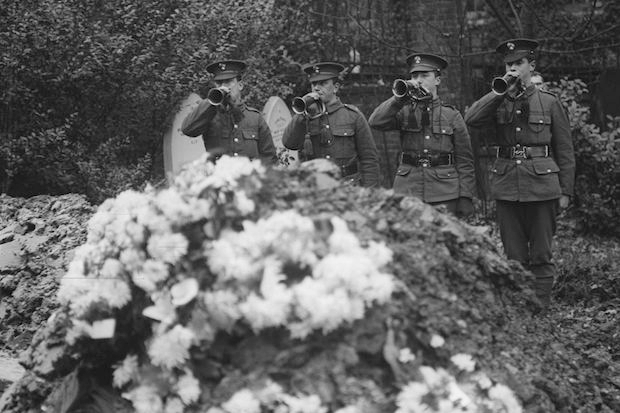From ‘Husbands, Sons and Brothers’, The Spectator, 5 June 1915:
AT the beginning of the war it was proposed by a group of well-known Englishwomen that mourning should not be worn for those killed in battle. The motive was excellent—the spirit of the Roman mother who did not count lost a life given for the State. But the propriety of this minor symbolism has been swallowed up and forgotten in the reality of a civic valour at home which has become so conspicuous that it needs no deliberate professions. We most all have been astonished at the calmness and the beautiful resolution present in thousands of families which, without condemnation, might have appeared to the world shattered, and for the time being demobilized from effort. We have all of us seen fathers who have lost sons, wives and mothers who have lost husbands or sons, men who have lost brothers, going quietly and untheatrically about their business, even redoubling whatever service they render to the nation, and anxious only to send another son, another brother, because, though Death crouches at the door, they cannot do otherwise. If any man or woman has said that this is too much to ask—that a dishonourable peace is better than countless blasted homes—we have not heard of him or her. Bitter though the sacrifices be, there is no questioning anywhere of the necessity of making them. Freedom, our country, self-respect, are to be saved, and no weight of human lives, however precious, can tilt the scale against that burden of indispensable possessions which have to be protected by death. Even wives who have lost their husbands, suffering that ultimate catastrophe with which no other bereavement and domestic derangement can compare, go straight an with what they are doing, They keep in touch with the regiment which honours the record of the dead, and serve it as though it could still yield the response and the longed-for tokens of affection which once came from a single person within it. It is fighting for the cause for which he fought, and it is enough.






Comments